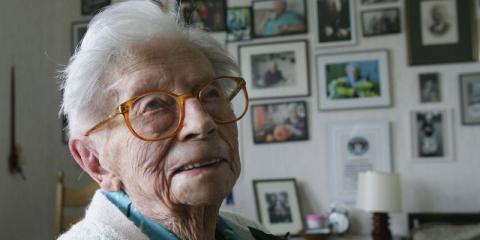The secret of longevity is hidden in our blood
Then it turned out absolutely amazing: the time of death of the old woman it consisted of blood cells produced only two active stem cells - so-called hematopoietic. Although usually blood doing about 1,000 such cells. In other words, the stock of hematopoietic stem cells is exhausted. Blood essentially ceased to be updated. Dolgozhitelnitsa somehow felt sorry for it. And zasobiralas up.
As the scientists explain, a person is born with about 20 thousand stem hematopoietic cells. They are found in bone marrow, have the ability to divide rapidly, turning into all kinds blood cells. Whereby blood and updated. Over the years the ability of stem cells to divide weakens. At each division shortened ends of chromosomes - called telomeres. Until they are barely noticeable. According to one hypothesis, namely the steady shortening of telomeres - Underreplication, scientifically, and ages. To death. It looks like that is - to some extent. At the telomeres Hendrickje blood cells were 17 times shorter than the telomeres of the chromosomes of brain cells. Brain was ok, and the blood - no.
possible to preserve youth and prolong the life of the man, adding he hematopoietic stem cells? Lead researcher Henne Holstege (Henne Holstege) Medical Center Free University of Amsterdam (VU University Medical Center in Amsterdam, the Netherlands) believes that this is not excluded. And as additives suitable stem cells stored at birth.
- These cells - he says - will be free of mutations and their telomeres are full-sized.
According to Henne,Stem cells can be recovered and in the adult human to retain and then add - many years later, when he grows old. Then it again lengthen telomeres. At least a little. But this can be done only with blood.
The study is published in the journal Genome Research called.

